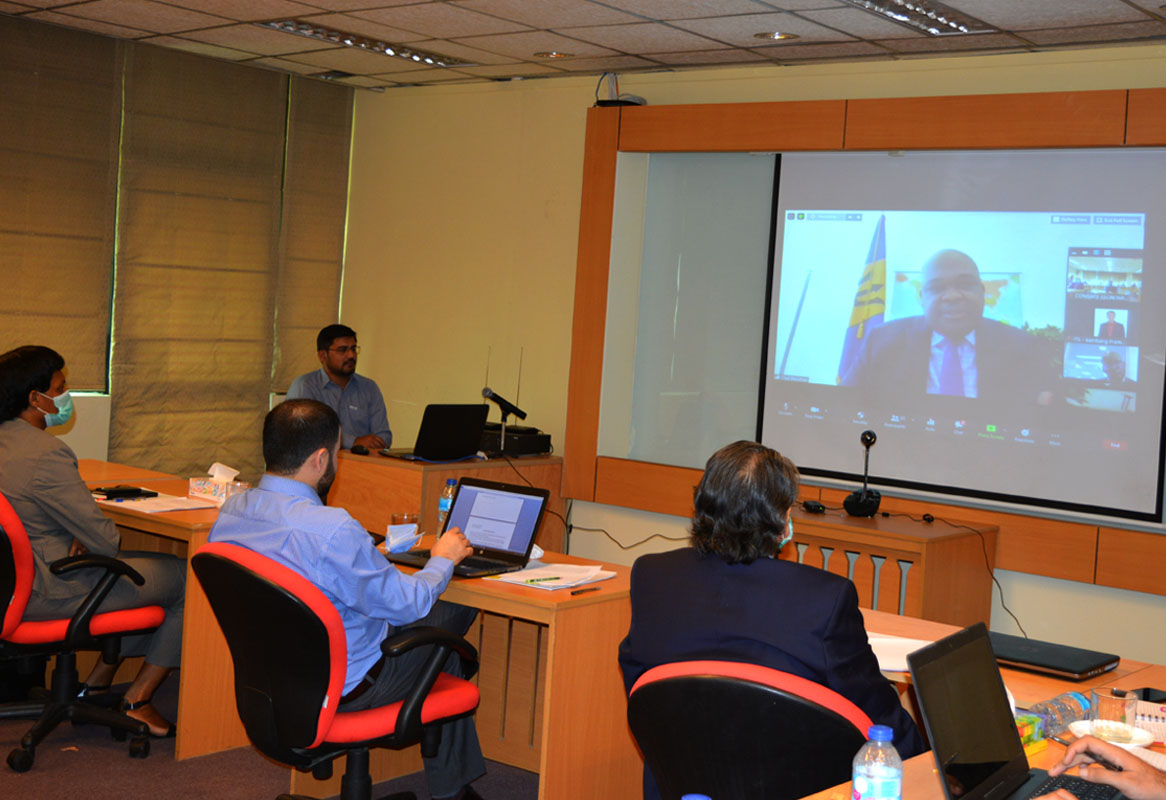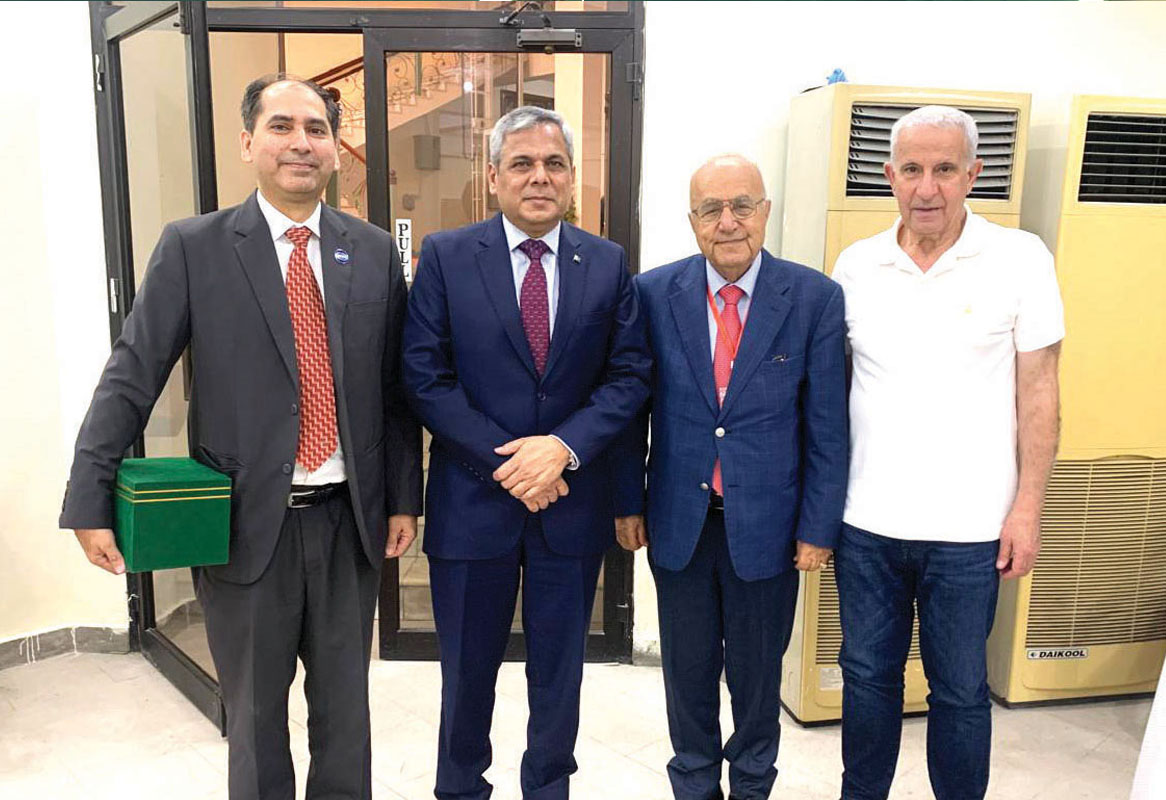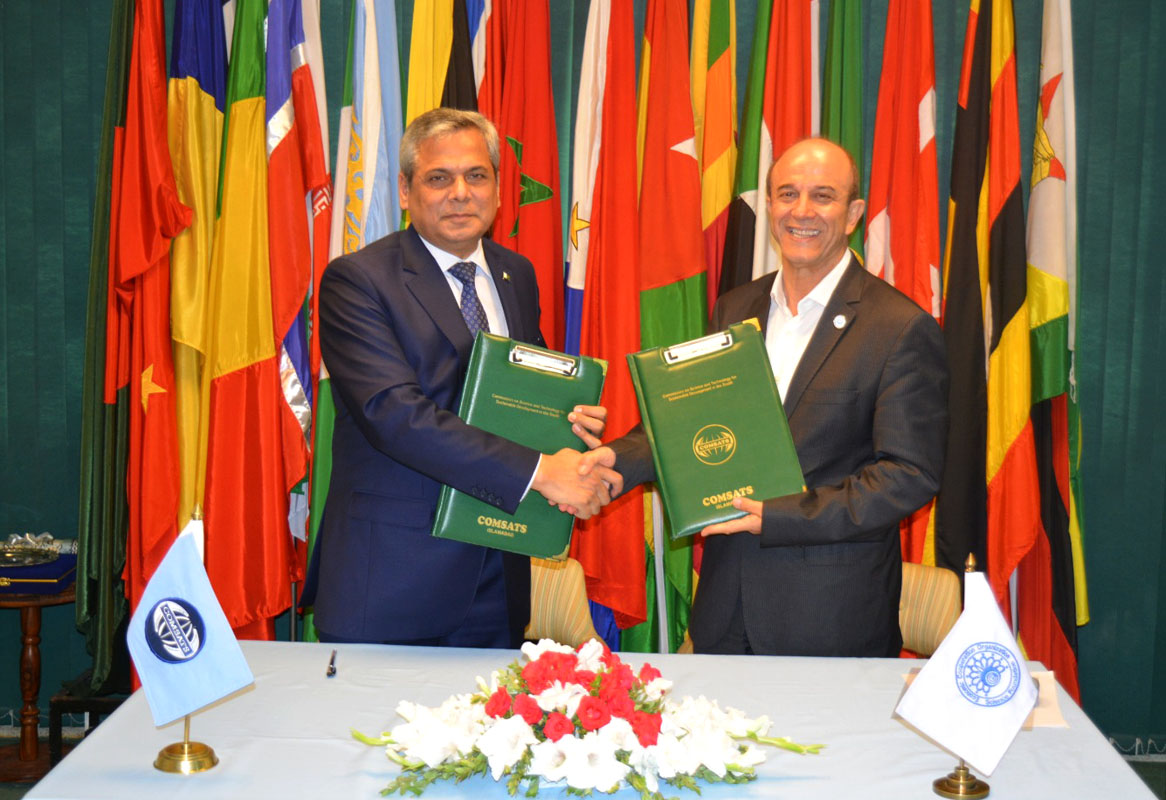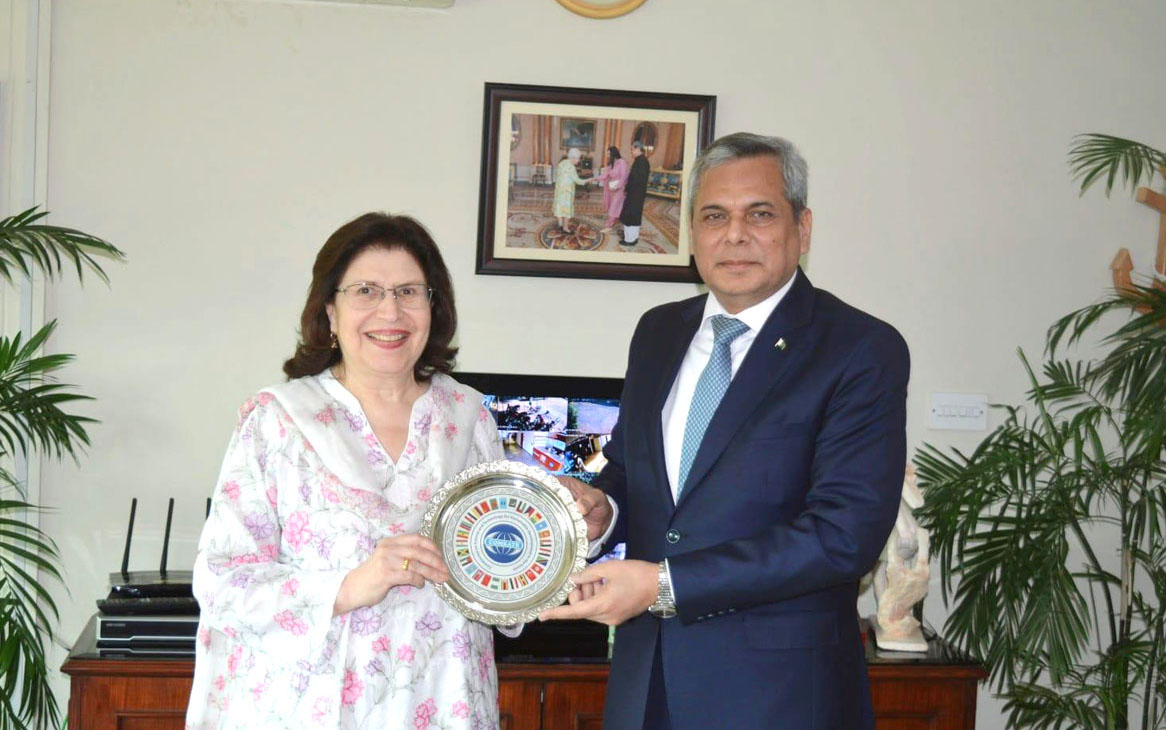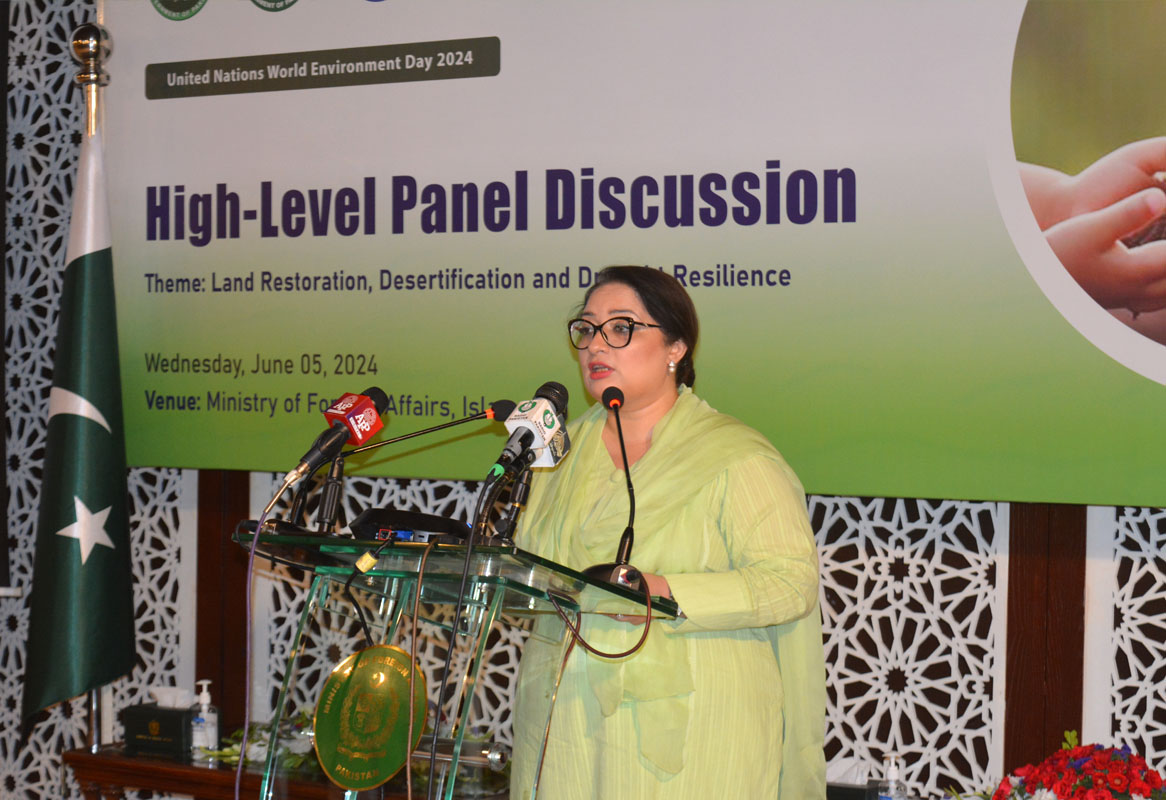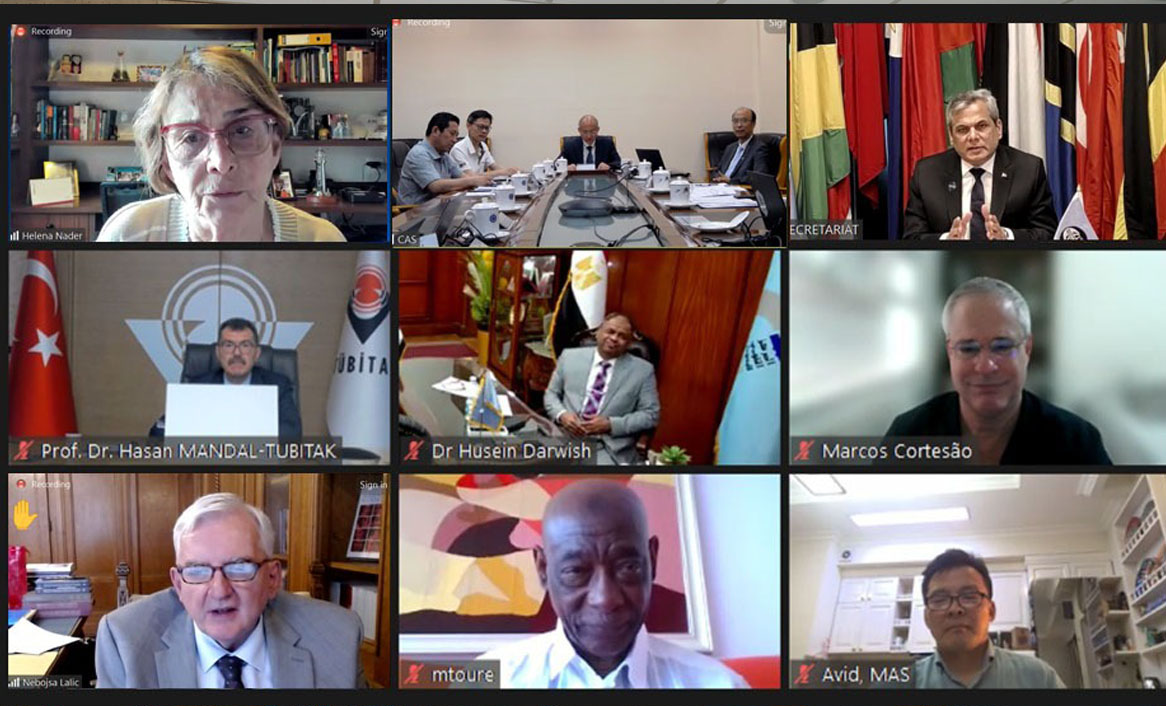COMSATS organized an international webinar on “Current Challenges: Imperative of South-South Cooperation”, on 16th September 2020, to mark United Nations International Day for South-South Cooperation.
Speaking on the occasion on behalf of the Executive Director COMSATS, Ambass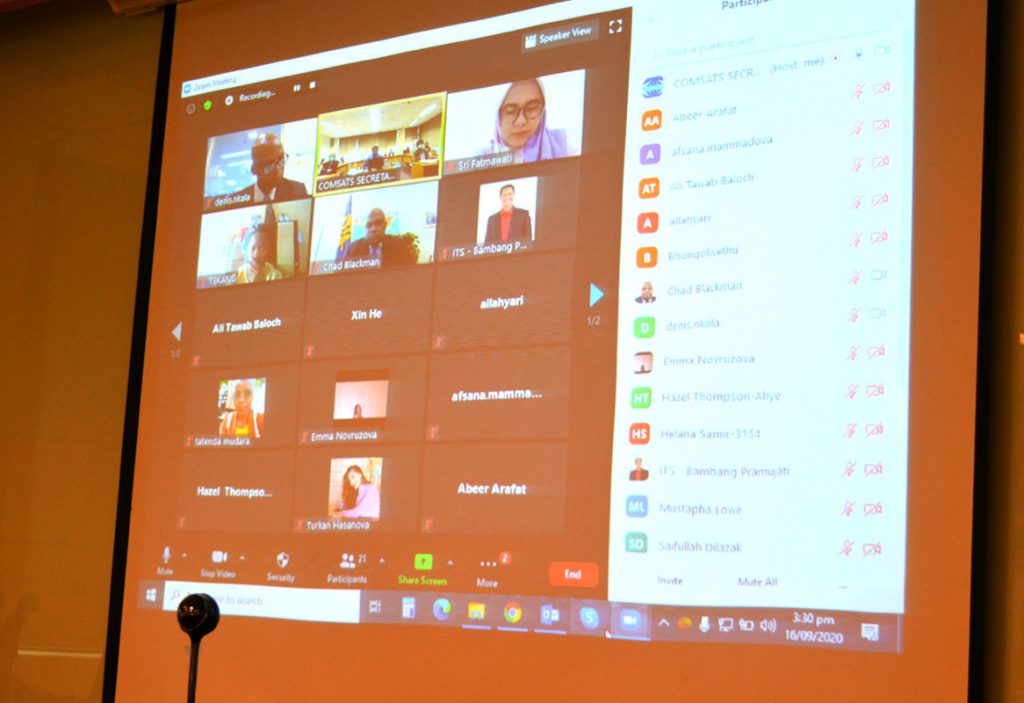 ador Shahid Kamal, Advisor on Climate Change and Environment at COMSATS, introduced COMSATS as an active proponent of South-South Cooperation for over a quarter of a century that has acquired special significance in recent years owing to the increased global recognition of significance of South-South Cooperation. While noting COMSATS’ linkages in the Global South, he considered COMSATS’ collaboration with the United Nations Office for South-South Cooperation (UNOSSC) and South-South Galaxy to be of great importance for achieving the shared mandate of betterment of the developing South.
ador Shahid Kamal, Advisor on Climate Change and Environment at COMSATS, introduced COMSATS as an active proponent of South-South Cooperation for over a quarter of a century that has acquired special significance in recent years owing to the increased global recognition of significance of South-South Cooperation. While noting COMSATS’ linkages in the Global South, he considered COMSATS’ collaboration with the United Nations Office for South-South Cooperation (UNOSSC) and South-South Galaxy to be of great importance for achieving the shared mandate of betterment of the developing South.
H.E. Mr. Chad Blackman, Barbados Ambassador and Permanent Representative to the United Nations and other international organizations based in Geneva, Switzerland, in his remarks underscored the importance of South-South cooperation that has acquired further significance during the COVID-19 pandemic. He noted that middle and low income countries, which are most vulnerable to emergent situations like those caused by COVID-19 and climate change, do not have enough access to global finance. He opined that the interconnectedness of development issues in developing countries makes them more complex and hard to resolve. Finding collaborative and indigenous solutions under South-South Cooperative arrangements is especially important based on the realization that North also has their own problems and urgencies besides facilitating the South. Expertise in the South should be cross pollinated maximizing the benefits of the potential available within the region. To be able to do so optimally, he called for: available expertise; assessment of issues, priorities and timelines; and its clustering by region. To fully benefit from the potential of South-South cooperation and improve existing systems in this regard he proposed developing/strengthening: South-South cooperation index; South-South finance mechanism, and mapping of expertise available in the South.
Speaking on the occasion, Dr. Denis Nkala, Regional Coordinator and Representative, United 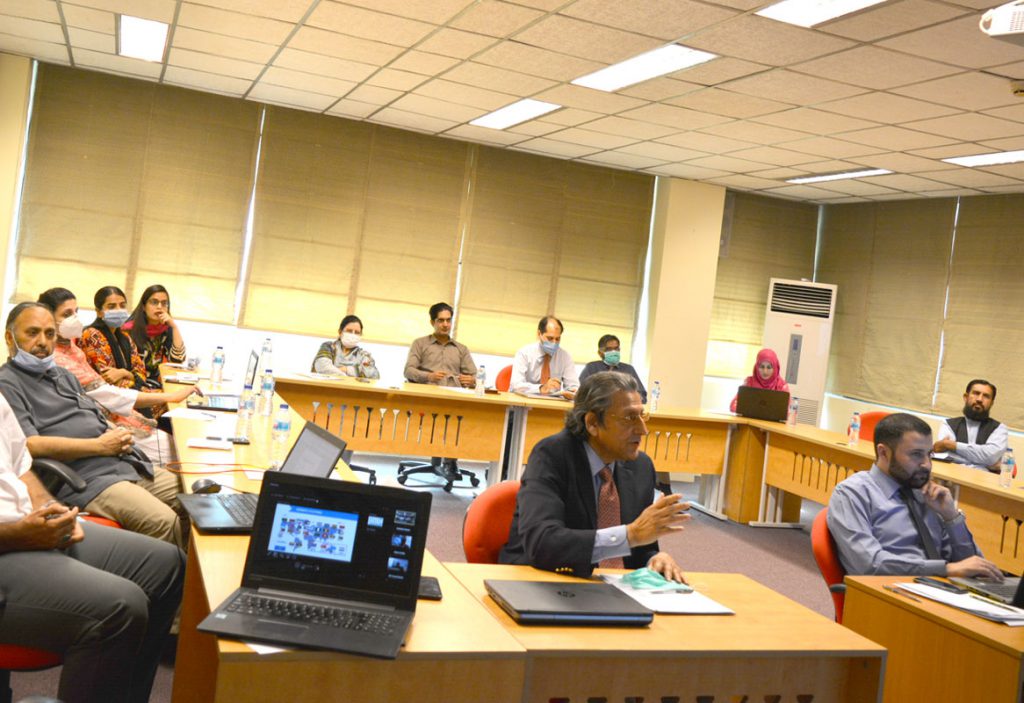 Nations Office for South-South Cooperation (UNOSSC), Asia and the Pacific Office, shared key findings of a survey assessing the level of cooperation amid COVID-19 pandemic. He remarked that institutions in the South should work in cooperation with IGOs like COMSATS to fight global issues such as climate change. He said that there is a need to take bold actions to address the biggest threats and opportunities by pooling resources, collecting data and better planning in the Global South.
Nations Office for South-South Cooperation (UNOSSC), Asia and the Pacific Office, shared key findings of a survey assessing the level of cooperation amid COVID-19 pandemic. He remarked that institutions in the South should work in cooperation with IGOs like COMSATS to fight global issues such as climate change. He said that there is a need to take bold actions to address the biggest threats and opportunities by pooling resources, collecting data and better planning in the Global South.
Senator Hazel Thompson-Ahye of Trinidad and Tobago welcomed COMSATS’ assistance in the field of education to help address increased discrepancies in the education system that have surfaced during coronavirus pandemic. She recalled the famous quote of Desmond Tutu “You can’t be human all by yourself” and emphasized that shared values of humanity make it imperative to look out for one another. Mutual cooperation and support is absolutely necessary to find solutions to common problems and achieving the global agenda of 2030 in these challenging times.
Ms. Ellen Thom, Technical Officer, Reproductive Health at World Health Organization 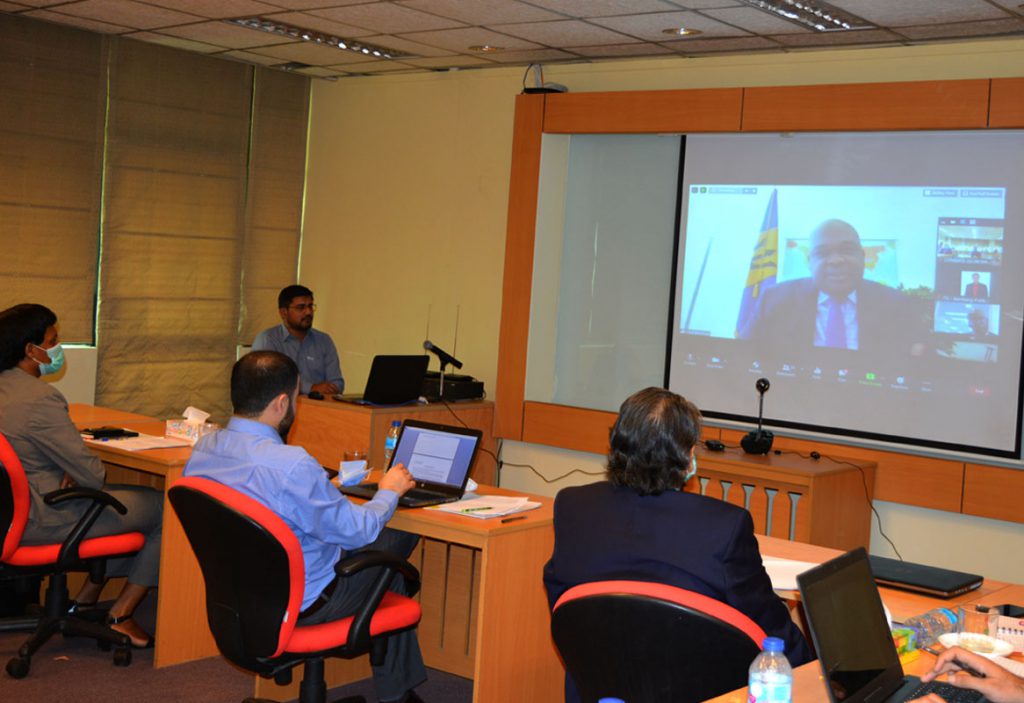 Pakistan represented His Excellency Dr. Palitha G. Mahipala, Head of Mission, WHO in Pakistan. Speaking on his behalf, she remarked that there is a need for strong collaboration in health sector in order to harmonize approaches among countries as well as to share experiences in the areas of service delivery, governance, emergency response. She congratulated COMSATS on organizing the seminar successfully.
Pakistan represented His Excellency Dr. Palitha G. Mahipala, Head of Mission, WHO in Pakistan. Speaking on his behalf, she remarked that there is a need for strong collaboration in health sector in order to harmonize approaches among countries as well as to share experiences in the areas of service delivery, governance, emergency response. She congratulated COMSATS on organizing the seminar successfully.
The moderator and coordinator of this international seminar, COMSATS’ Assistant Director (Programmes), Engr. Qaiser Nawab, remarked that a number of countries of the Global South have already demonstrated effective responses to the pandemic and mitigate its impact. Least developed countries (LDCs) and other developing countries have a lot to learn and exchange with countries that have demonstrated efficient health systems, effective governance mechanisms, leadership, coordination, communication, and community cohesion during the crisis.

